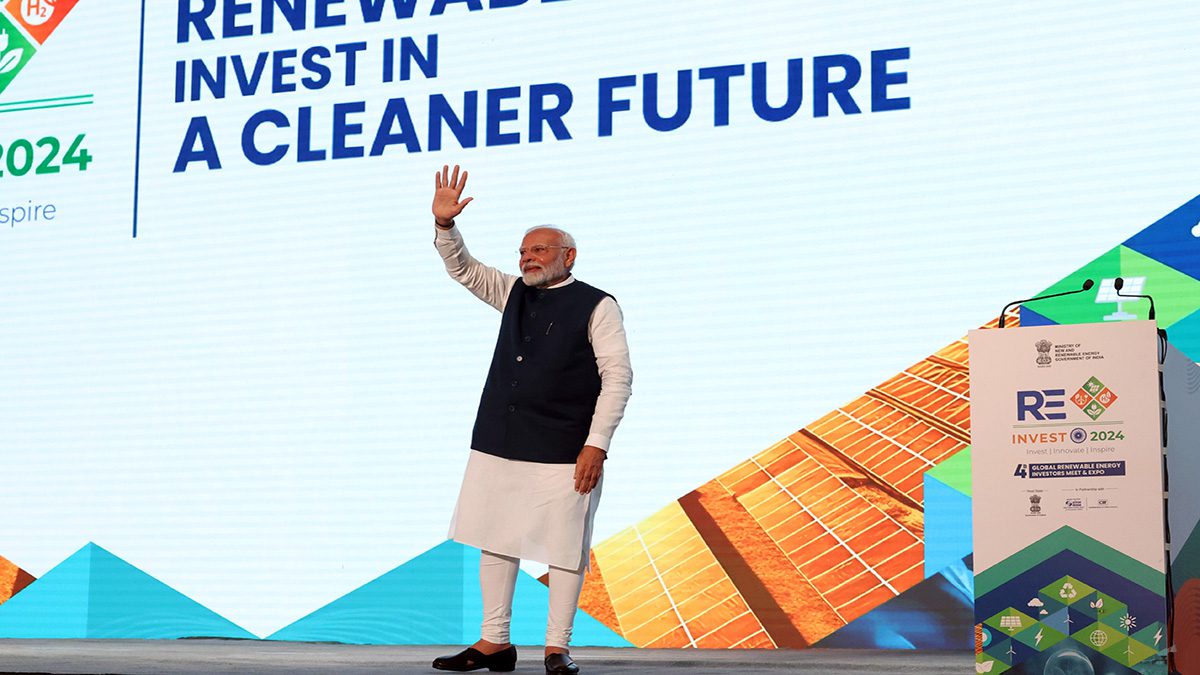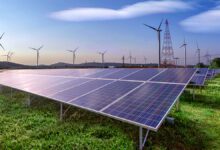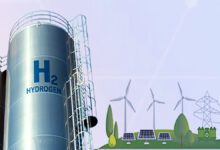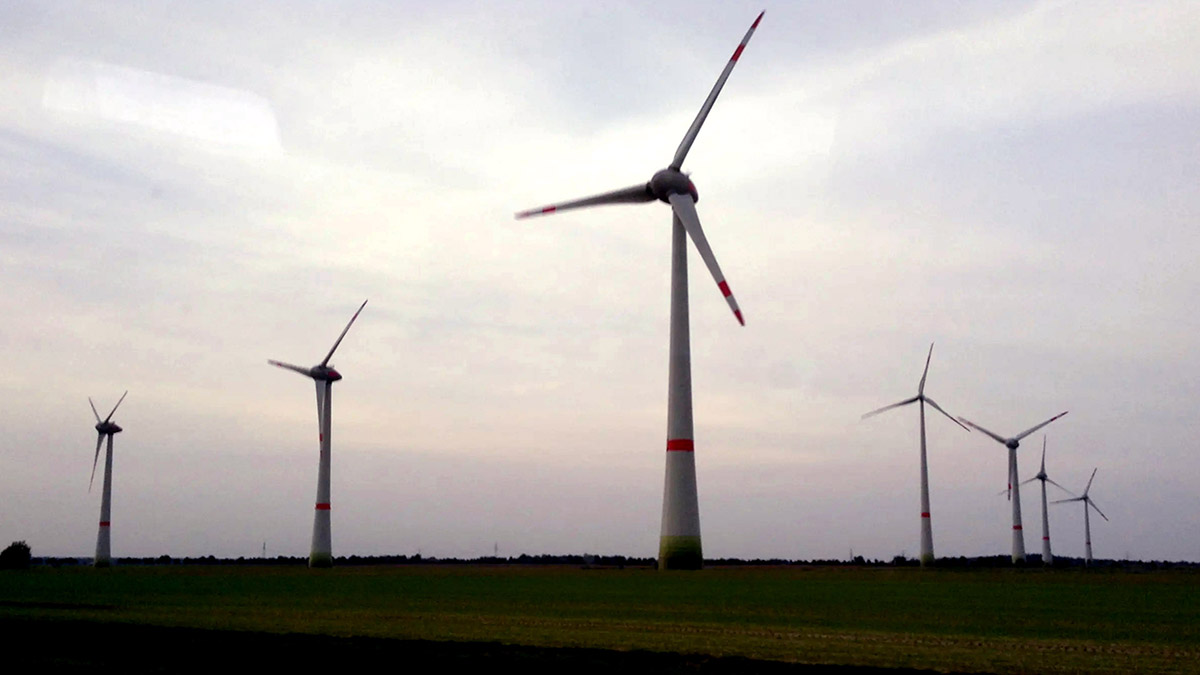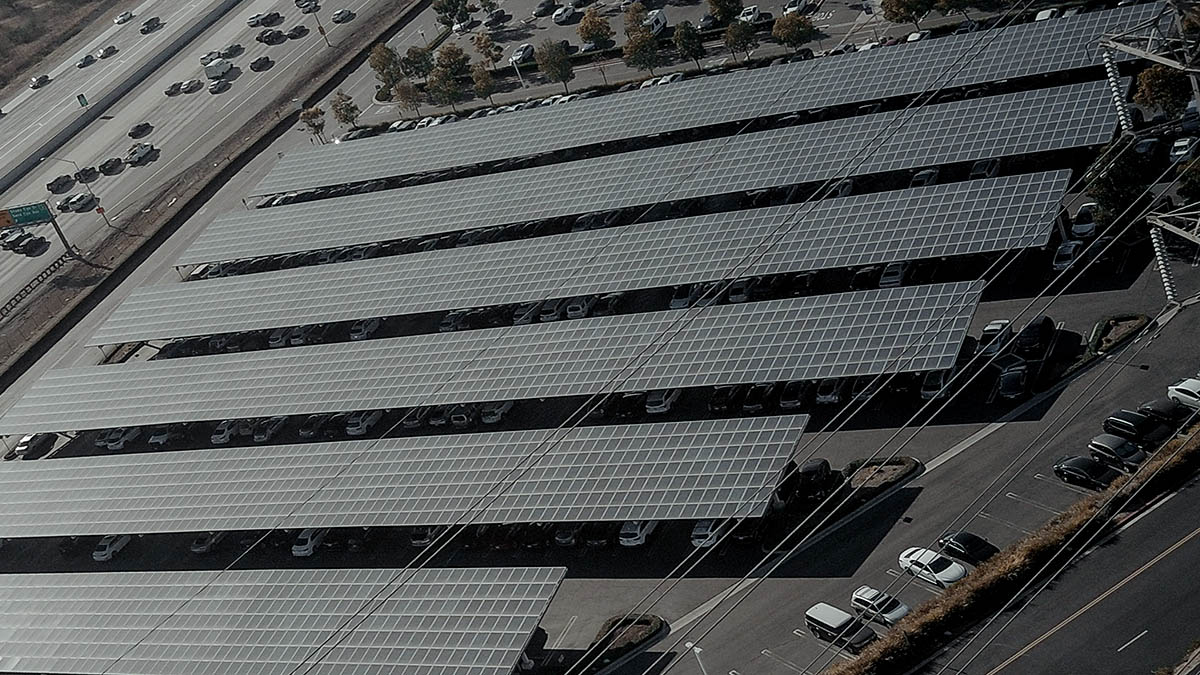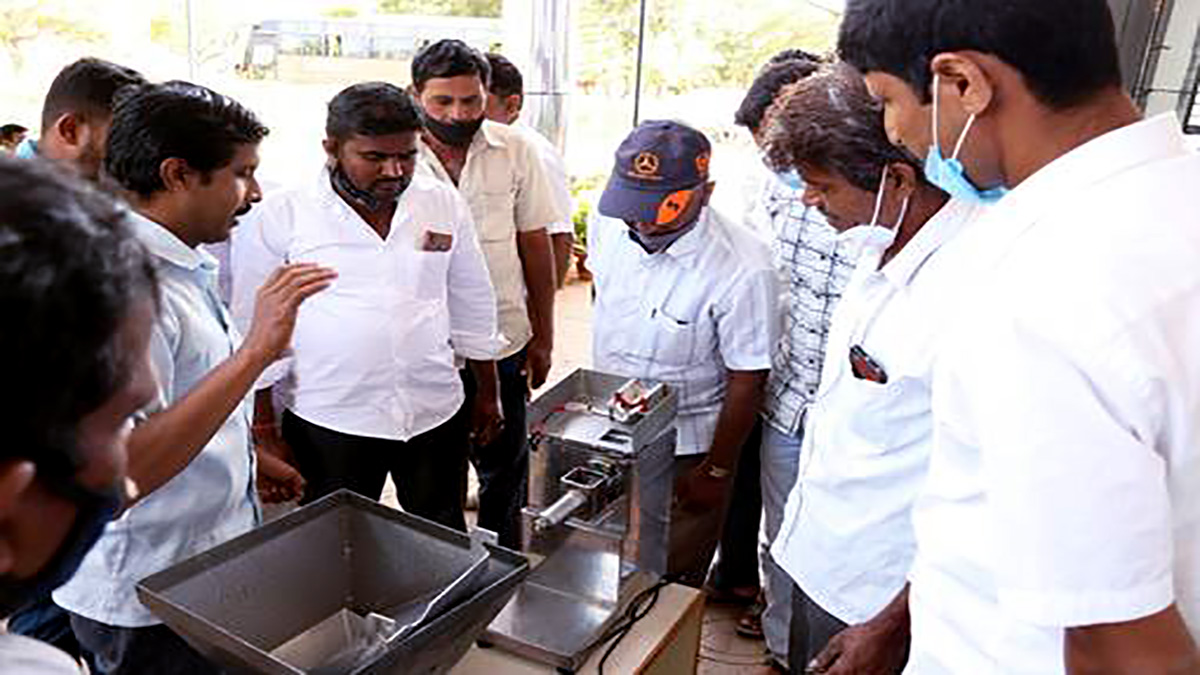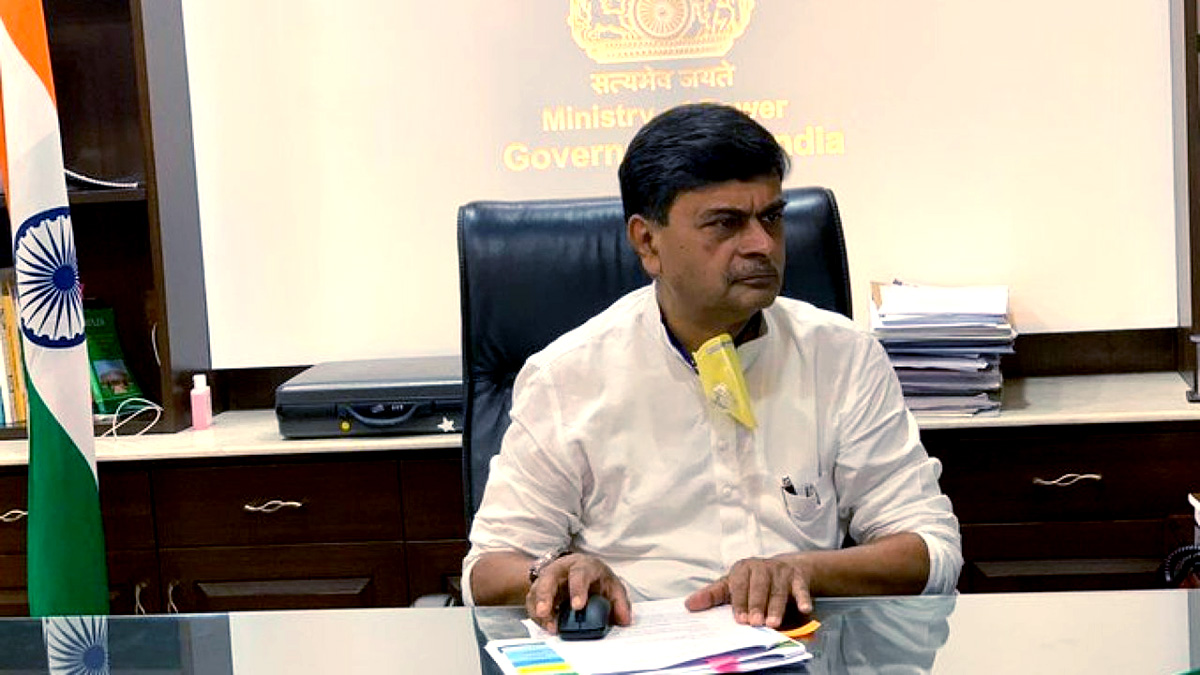Prime Minister Narendra Modi inaugurated the 4th Global Renewable Energy Investor’s Meet and Expo (RE-INVEST) at the Mahatma Mandir in Gandhinagar, Gujarat. The three-day event, aimed at fostering discussions on the future of renewable energy, technology, and policies, highlights India’s significant strides in renewable energy, with over 200 GW of installed non-fossil fuel capacity.
In his address, Prime Minister Modi expressed confidence that the summit would lead to fruitful discussions that would benefit humanity. He noted that India’s re-election of his government for a third consecutive term was a reflection of the nation’s aspirations. He emphasised the collective efforts of 140 crore Indians towards making India the third-largest economy in the world and highlighted the government’s vision to turn India into a developed nation by 2047.
PM Modi pointed out that the government’s priorities in the first 100 days of the current term include expanding physical and social infrastructure. Key initiatives include the construction of 7 crore houses, the establishment of 12 new industrial cities, and approval for eight high-speed road corridors. Additionally, more than 15 Vande Bharat semi-high-speed trains have been launched, and a research fund worth Rs 1 trillion has been established to promote innovation in various sectors.
In the green energy sector, Prime Minister Modi announced the launch of a viability gap funding scheme for offshore wind energy projects with an outlay of Rs 7000 crore and plans to produce 31,000 MW of hydropower. He highlighted India’s efforts to achieve the target of 500 GW of renewable energy by 2030 and underscored the global recognition of India as a key player in the green transition.
The Prime Minister also introduced the PM Surya Ghar Free Electricity Scheme, aimed at installing rooftop solar setups for families across India. With over 1.3 crore families already registered and installations completed in 3.25 lakh households, the scheme enables families to generate electricity and sell excess power to the grid. PM Modi emphasised the financial benefits of the scheme, which could lead to significant savings for families and job creation, with around 20 lakh new employment opportunities expected.
Highlighting the success of Modhera, India’s first solar-powered village, PM Modi announced plans to replicate this in other villages and cities, including Ayodhya, which is being developed as a model solar city. He also outlined government plans to support farmers with solar-powered pumps for irrigation and the development of solar farms.
In the nuclear and hydrogen energy sectors, PM Modi revealed that India’s nuclear energy production had increased by 35% in the last decade, and the country is making strides in green hydrogen with the launch of the Green Hydrogen Mission. He also stressed the importance of a circular economy, focusing on waste-to-energy initiatives and critical minerals reuse.
The Prime Minister concluded by inviting global investors to participate in India’s renewable energy sector, noting the immense opportunities in both energy generation and manufacturing. He reiterated India’s commitment to green transitions, sustainable growth, and pro-planet principles through initiatives like the International Solar Alliance and the Global Biofuel Alliance launched during the G20 summit.


